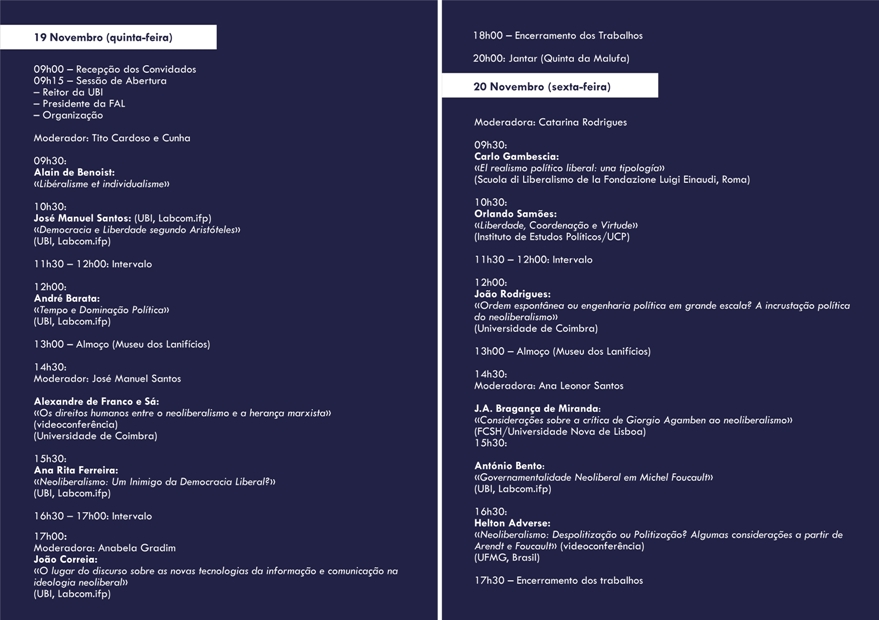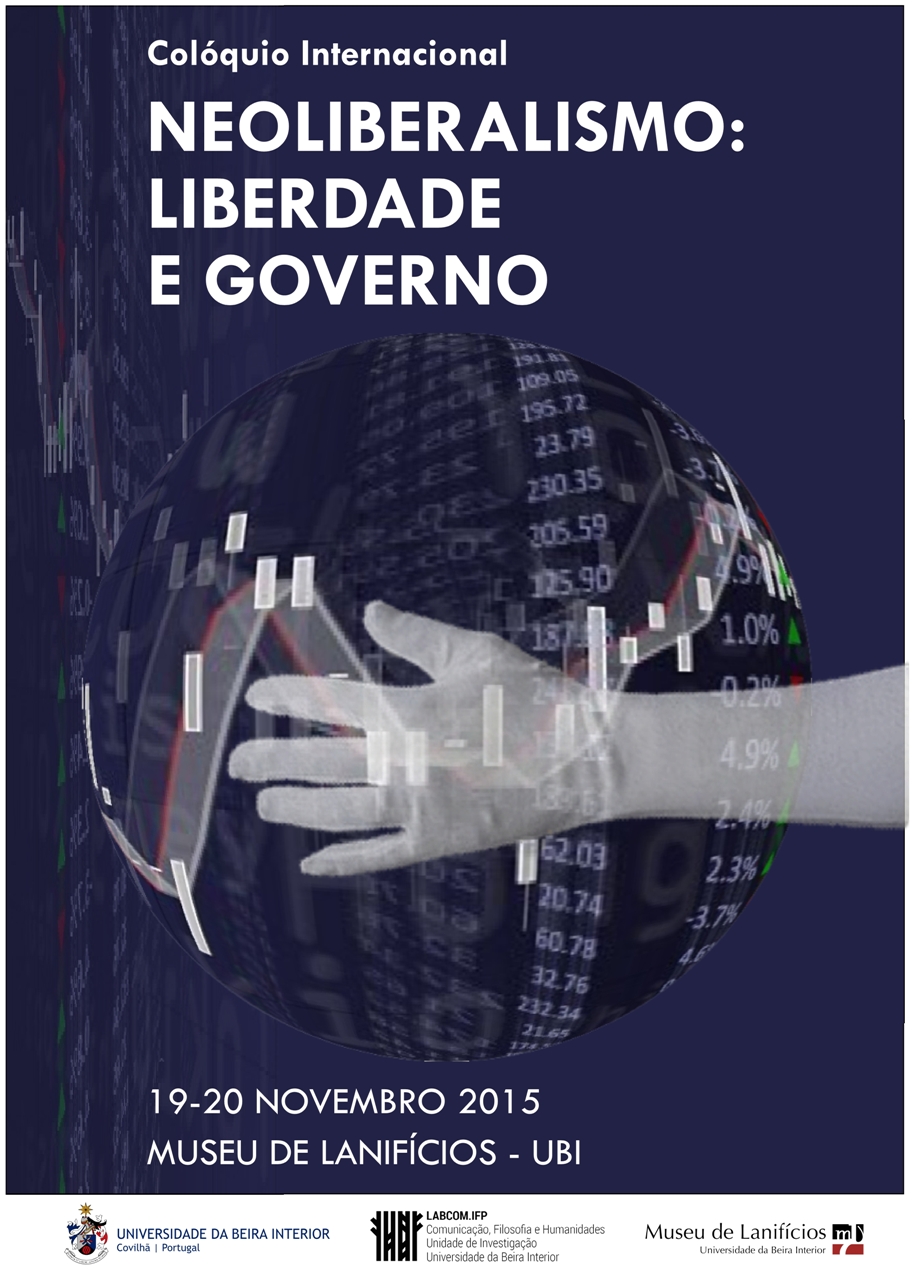Policy conference - Neo-Liberalism: Freedom and Government
UBI, Wool Museum, 19-20 November 2015
From the «Walter Lippmann Colloquium» (Paris, 1938) to the «Mont Pelerin Society's» constitution (Switzerland, 1947); from the German ordoliberalism from the ashes of World War II from the late 1970’s and early 1980’s, with the coming to power of Margaret Thatcher in the United Kingdom and Ronald Reagan in the United States of America; from the hidden dialogue and the titanic struggle waged in the course of the twentieth century between John Maynard Keynes and Friedrich A. Hayek by an operational and normative definition of contemporary economics; from the “Chicago Boys” to the «New Economists» in Europe; from the great financial crisis of 2008 to the uncertain and harrowing current days, the term «neo-liberalism» remains -which mantra...- a conceptual nebula able to receive the most disparate traditions and the most conflicting versions of both classical «political liberalism» and «economic liberalism». Despite a slow, difficult and controversial process of academic consecration, and in spite of the familiarity of the word to the general public, the truth is that the general term «neo-liberalism», subject to all kinds of use and abuse since the years 1930 to this day, is far from being univocal. To the point where we can say without fear that under a false uniqueness and under an illusory transparency of the term «neo-liberalism» various «neoliberalisms» with lineages, traditions, practices and highly differentiated economic and political developments are hidden after all. The International Conference that the Core of Practical Philosophy of Labcom.IFP will carry out in the next few days 19-20 November, gathering a handful of authors from the different territories of Social Sciences and Humanities, aims to raise a lively and clarifying debate around the new theoretical and practical problems that the simple prefix «neo» poses nowadays to the general classic term «liberalism». We believe that the whole “ubian” community will be aware of the need to participate in an event that, transcending the scientific areas of the UBI’s faculties, surely concerns – in a vivid and so current way – each and every one in particular.








